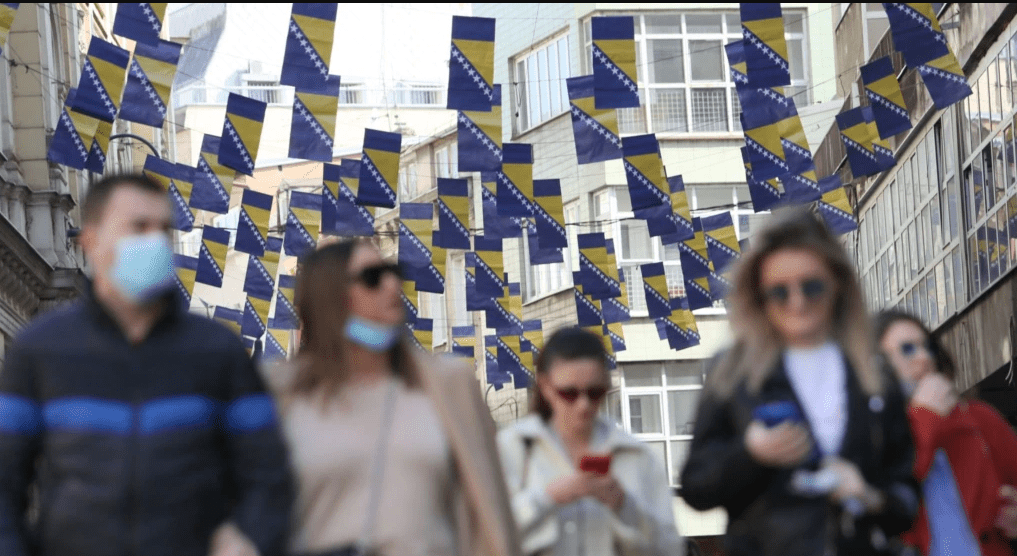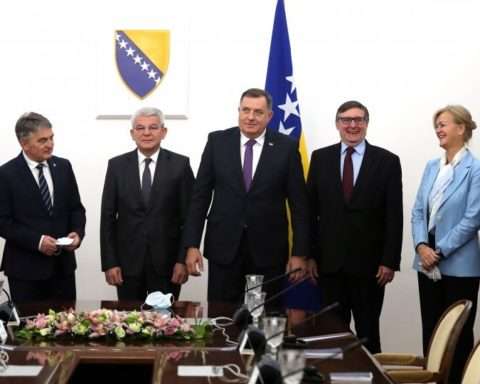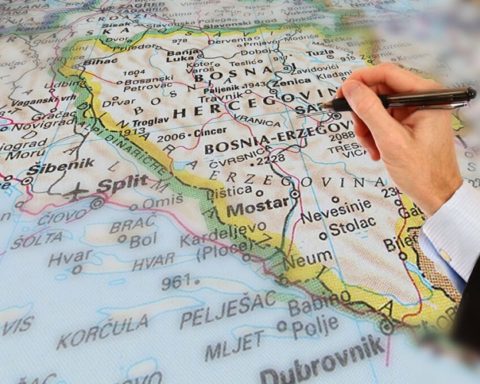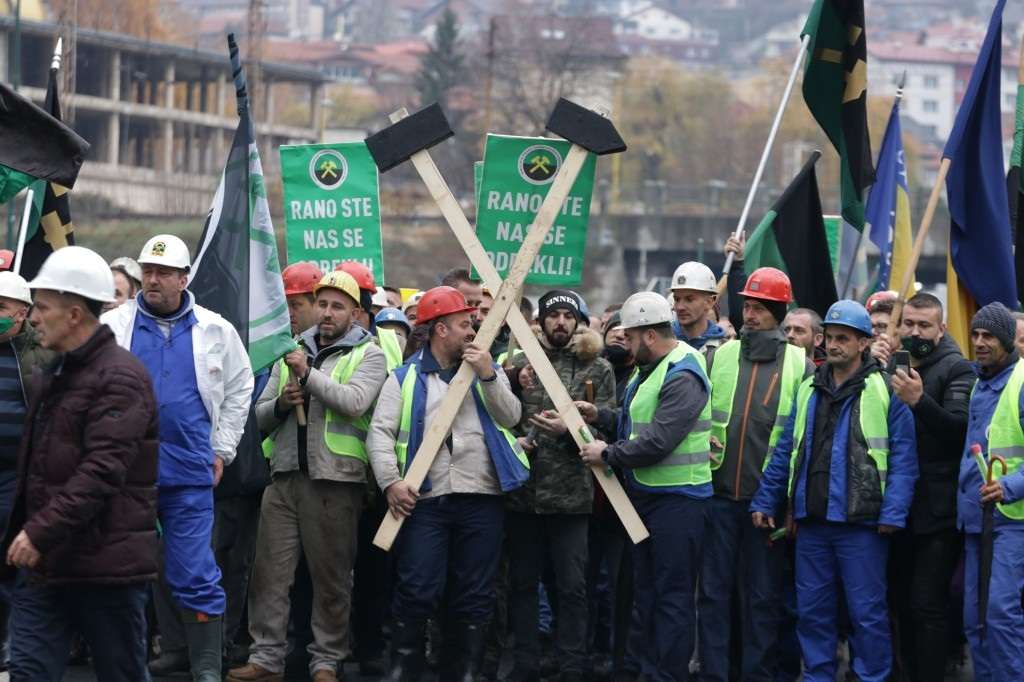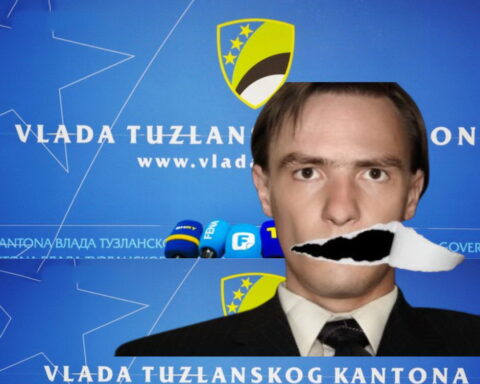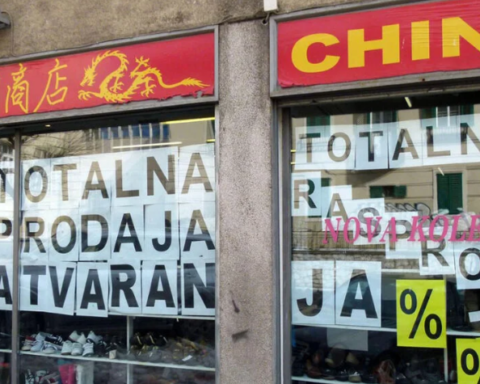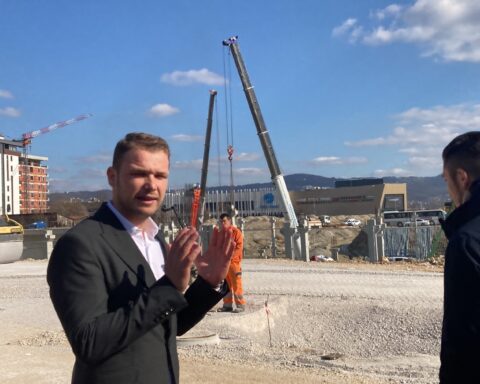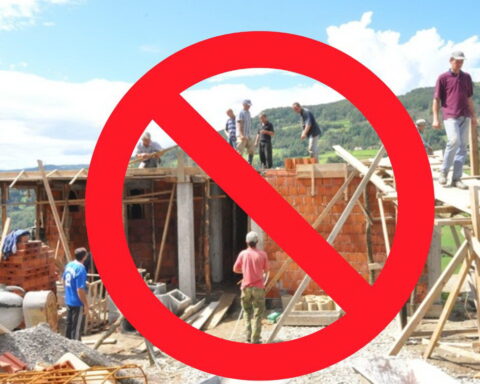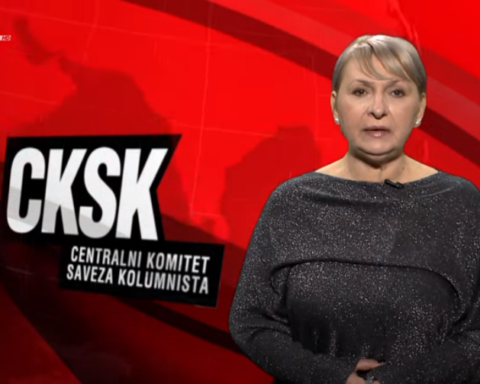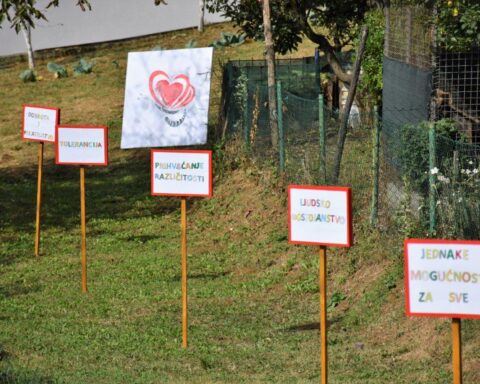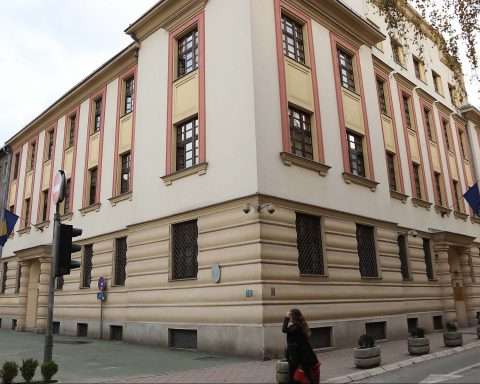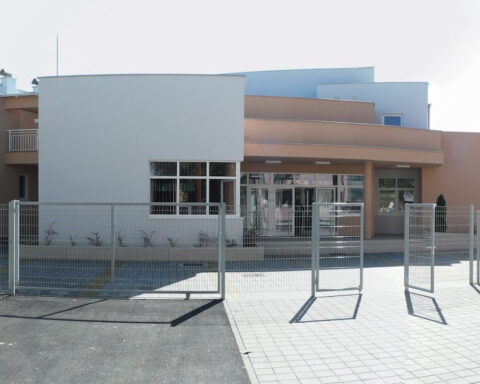The BiH Election Law does not recognize the identity of a BiH citizen, so Azra Zornić addressed the European Court of Human Rights in Strasbourg. In July 2014, the court passed a verdict in which Bosnia and Herzegovina lost the dispute, and it was established, inter alia, that Azra Zornić was prevented from participating in the elections for the House of Peoples on the basis of her ethnic origin, and that the continued inability to participate in the elections was not objectively and reasonably justified, which makes these provisions of the Constitution discriminatory.
For the Second Program, Zornić writes about the difficult path to equality, which has no end in sight.
After signing the General Framework Agreement for Peace in Dayton, which had only one purpose – to stop the war and bloodshed in Bosnia and Herzegovina, I patiently waited for the institutions of Bosnia and Herzegovina to adopt the Constitution of Bosnia and Herzegovina in the regular parliamentary procedure.
When I realized that this would not happen and that Annexe IV of the Dayton Agreement would remain as a permanent constitutional solution, it was high time to start activities in the direction of resolving this crucial issue for Bosnia and Herzegovina.
Given that I did not have any effective remedy in BiH, I decided to turn to the European Court of Human Rights in Strasbourg. I appealed against Bosnia and Herzegovina in December 2005 due to the discriminatory provisions of the BiH Constitution.
As I was the first BiH citizen to address the Strasbourg Court, many of my colleagues and friends expressed deep scepticism about the outcome of the proceedings themselves. The only sincere support I received was from my family. During the proceedings, the Court allowed me to represent myself and translate my submissions into English, so I did not have any team of people to assist me. The proceedings before the Court itself lasted a full nine years.
Constitution and Discrimination
It was only in July 2014 that the Court issued a judgement finding significant violations of the articles of the Convention for the Protection of Human Rights and Fundamental Freedoms as well as the Protocol to the Convention. In simple terms, the Court ordered the adoption of a civil constitution, as Faris Vehabović, a judge of the European Court of Human Rights, explained on several occasions in the media, noting that the implementation of the Zornić verdict would automatically implement other verdicts: ‘Sejdić – Finci’, ‘Pilav’, ‘Šlaku’, ‘Pudarić’.
Apart from sporadic inquiries from certain media, mostly always and only before the elections, the implementation of my verdict was largely silent. Why? Because it was not appropriate for the three tribal leaders to discuss changes to the Constitution and the Election Law in the spirit of the judgements of the European Court of Human Rights.
After the municipal elections held in 2018, when the citizens of Sarajevo, Banja Luka and other cities clearly expressed their will and gave confidence to the democratic instead of the previous ethnocratic parties, an avalanche started. Ethnocrats have received a clear message that the survival of their policies and power is at stake, and thus illegal enrichment at the expense of citizens, and that they will be followed not only by the loss of power and illegally acquired property, but also by court proceedings and, for some, imprisonment.
The first to go on the defensive was Milorad Dodik, an extended arm of Aleksandar Vučić and a player of Vladimir Putin, followed by Dragan Čović, an ethnocrat. A Croatian pastor under the guise of protector of the Croatian people in Bosnia and Herzegovina, as an extended arm of the HDZ and their aspirations towards the territorial integrity of Bosnia and Herzegovina. Last but not least, is Bakir Izetbegović, the leader of the SDA. One without a clear vision for Bosnia and Herzegovina, without a clear position, and under the direct and obvious influence of his wife Sebija, has no exit strategy and seeks and expects help from Turkish President Erdoğan.
Given that Dodik did not achieve the expected results for him with his initial anti-Bosnian campaign, on the advice of his mentors, he became more radical day by day, thus provoking the international community with one goal: if he cannot win the 2022 elections, the exit strategy would be for the international community to remove him from the position of a member of the presidency, making him a ‘national hero of the Serbian people’.
The first reactions of the international community started with the coming of the Biden administration to power, from the USA. Just before the announcement of Matthew Palmer’s arrival in Bosnia and Herzegovina, I published an article in the American ‘Just Security’ with the intention of warning about the real situation in BiH. The first disappointment came with the arrival of diplomat Matthew Palmer as an envoy for electoral reforms in BiH.
Palmer, together with Angelina Ajhors, initially chose an undemocratic path, because before arriving in Sarajevo he visited Zagreb and talked to the HDZ leadership there. He then went on to discuss an attempt to reach an agreement with three tribal leaders in BiH who call themselves representatives of the three constituent peoples in BiH. Citizens recognized Palmer’s intention to fulfil his mission by erasing as soon as possible the ethnic prefix from the Election Law, which showed that he came unprepared to BiH, without legal knowledge and knowledge of the international and domestic legal system. Citizens were forced to explain in an open letter to Palmer that it was not possible to change the Election Law without first amending the discriminatory provisions of the Constitution established by the European Court of Human Rights in Strasbourg in the Sejdić-Finci and Zornić cases. Immediately after the publication of the open letter, I received an invitation to attend a working lunch at the residence of the American ambassador, together with Sejdić, Finci and Pilav, which was also attended by Satler, Ejhorst and Palmer. The intention was actually just an attempt to secure legitimate support for an elite-led deal, not to accept real and new ideas for reforms that he could use to pressure and persuade the powerful. Considering that at that meeting, I refused to formally shake hands and ‘take pictures’ with the hosts, that meeting was not even covered by the regime media. So Palmer returned to America with unfinished business.
This was followed by the announcement that diplomat Ambassador Gabriel Escobar, who previously worked at the embassy in Belgrade, was coming to BiH, and who announced sanctions for all those individuals who obstruct the work of state institutions; one thing all citizens of the country agree on is that they could give a list of leaders who deserve such sanctions. Escobar also held similar talks as Palmer and returned to America, doing nothing more than reaffirming to political leaders that they are the only ones in favour of BiH.
The last in a series of diplomats to stay in BiH is Derek Colet, who also held talks with the same establishment. He also announced that BiH’s prospects are being hampered by the status quo. His visit was corroborated by a letter from the Secretary of State Anthony Blinken to three members of the presidency, reiterating that BiH can only move forward if the three nationalist parties – which have been the source of the 26-year freeze – finally decide to end their blackmail. But while these words seem touching, the agreement reached between them represents a good, old-fashioned appeasement of these same division plans.
The most devastating fact that affected the loss of civic trust and credibility that the United States enjoys in BiH is the confirmation of the Minister of the Republic of Serbia that Palmer, as a Serbian lobbyist, is on the payroll of the Foreign Trade Chamber of the Republic of Serbia. How can citizens trust the State Department when it sends Serb mercenaries to BiH to implement electoral reforms? Thus, with this move, the United States, as the leader of democratic processes in the world and the guardian of world peace, completely loses the credibility of civil society in the Balkans.
From December 9 to 10, 2021, President Biden will host the first of two democracy summits, bringing together government and private sector leaders, civil society, to set an affirmative agenda for democratic reconstruction and tackling the greatest threats facing today, democracies face collective action. It is a paradoxical fact that all (non) democratic countries from BiH. environments other than Bosnia and Herzegovina received the invitation. This includes Serbia – which has neither reconciled itself to its role in the war in BiH nor plays a positive role today – and Croatia, which continues to undermine BiH’s sovereignty through calls for an ethno-territorial division that would never allow non-Croatian citizens of its country.
Citizens are wondering what message President Biden is sending to Bosnians and Herzegovinians. And I find it hard to believe that it is a ‘coincidence’ that the democracy summit was organized at about the same time as undemocratic talks between US and EU diplomats with anti-democratic forces in BiH. Citizens are beginning to clearly demonstrate a lack of understanding of regional policy and a lack of respect for this country.
Trust Yourself
The citizens of BiH have lost confidence in the European Union and its good intentions towards them. The EU is divided and as such is unable to help in a positive way. Germany, the three Benelux countries and the Czech Republic were in favour of sanctioning Dodik, but unfortunately remained lonely in their intentions. We were recently visited by EU parliamentarians Tineke Strik (Greens) and Dietmar Köster (SPD), who made clear their intentions to help us regain our legitimate engagement as citizens, and that was very welcome. We are aware that we could not do much on our own, but it is good that a group of MEPs from four large families of EU parties – the Greens, S&D, Renew Europe and the EPP – have expressed concern for BiH and called for more serious policies. So, this is the basis on which the foundation needs to be built in order for the EU member states to finally get serious.
In order to invite the United Kingdom, which is no longer a member of the EU, to join the democratic process in Bosnia and Herzegovina, I spoke with Guy Delaney, a journalist for the London BBC news, who later wrote: ‘Azra Zornić is more concerned about international response. She worked for the UN refugee agency of the 1990s and passionately opposes ethnic divisions, fighting and winning a case before the European Court of Human Rights to identify people as “Bosnians” rather than as one of the country’s three main ethnic groups. Citizens are confused by the action of the international community, which supports and rewards the country’s destroyers, she says. They are horrified by reports of war and the country’s disintegration. And they are worried about the UN Security Council’s concessions to Russian blackmail. Her fears about Russia stem from the ongoing debate in the Security Council over the renewal of the mandate of Bosnia’s 600-member EU-led international peacekeeping force, EUFOR. Moscow has indicated it will use its veto unless references to the international high representative are removed from the relevant resolution.
So, after all the events so far at the international level of assistance in building a democratic Bosnia and Herzegovina, my conclusion is: as our people say – “trust in yourself and your people”.
Still moving
Citizens need to turn to themselves and resolve internal political relations on their own. In this regard, it is encouraging that democratic processes have started and that we already have three proposals for amendments/changes/adoption of a completely new constitution, the authors of which are citizens of Bosnia and Herzegovina.
Exclusively for your portal, I disclose the activity of young and educated enthusiasts who have a completely different vision of the organization of Bosnia and Herzegovina. These young people sat down and voluntarily wrote, therefore, put on paper a proposal for a new social contract called “Munipalization”. This project represents the structure of the future government in BiH, which goes from the municipal to the state level. The idea is to concentrate power at the municipal level by having citizens participate directly through their local government representatives. Of course, this is not a final product, so it is subject to adaptation of each municipality in accordance with the requirements and needs of its citizens. Given that I did not participate, in any way, in the drafting of this document, I cannot even comment in detail on the work of these young people, whom I admire and who gives me the wind in my back to continue my struggle for a democratic and civil Bosnia and Herzegovina.
Finally, I take this opportunity to congratulate my homeland and all its citizens November 25th, with the words: “Happy birthday, my only homeland”, with the traditional greeting “Death to fascism, freedom to the people” and the message: Bosnia and Herzegovina was always, is and always will be here, with us, its citizens, in it.

